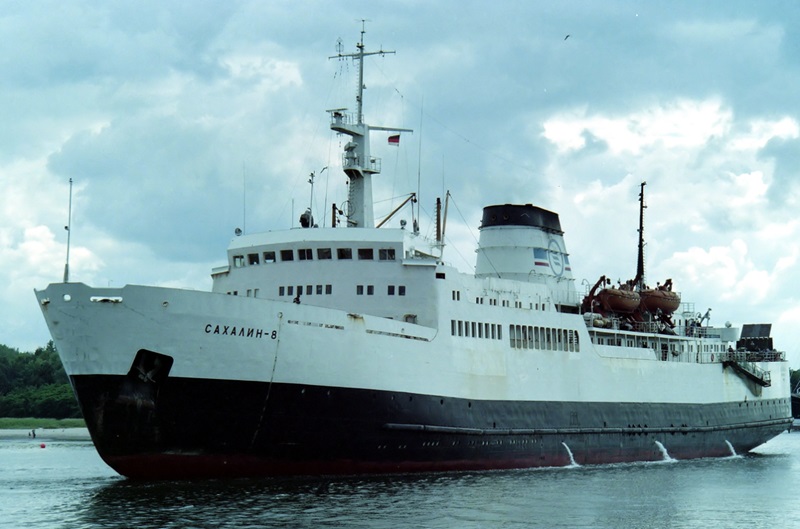A Russian cargo ship subject to U.S. sanctions vanished in North Korean waters after turning off its automatic identification system (AIS) earlier this month, raising concerns over possible illicit transfers between North Korea and Russia as their cooperation deepens across political, economic, and military sectors.
On February 5, the Russian-flagged cargo ship Sakhalin 8 (IMO 8330516) switched off its AIS tracking system while in Russian waters near North Korea and disappeared, according to Windward, an Israel-based maritime intelligence firm that utilizes artificial intelligence to track global shipping movements.
According to Radio Free Asia, approximately 13 hours later, on February 6, Sakhalin 8 reappeared within North Korea’s exclusive economic zone (EEZ), where it reportedly remained for about 20 hours before continuing its journey. The vessel’s stopover in North Korean waters raises suspicions of potential interactions between Pyongyang and Moscow.

Windward’s report highlights that since departing Russian waters on February 2, Sakhalin 8 has frequently disappeared from tracking systems while transiting the EEZs of North Korea, South Korea, and Japan. During this period, multiple “cargo alerts” and “sanctions-related alerts” were triggered, indicating the possibility of illicit transshipments or transactions.
Most notably, while Sakhalin 8 was in North Korean waters, a cargo alert was triggered, and the ship remained untraceable for an extended period in what Windward identified as a “lost signal” status. Experts suggest this pattern of vanishing AIS signals, particularly while passing through North Korean waters, could be an attempt to obscure unauthorized cargo transfers.
Sakhalin 8 belongs to Sakhalin Shipping Company, which was sanctioned by the U.S. Treasury Department in July 2023 due to its connections with Russia’s war effort in Ukraine. Given its sanctioned status, its movements through North Korean waters, coupled with its disappearance from tracking systems, heighten suspicions that it may have violated international sanctions.
The Ukrainian Defense Ministry’s Intelligence Directorate (GUR) also lists Sakhalin 8 on its “War & Sanctions” website, emphasizing its involvement in critical maritime transport and energy projects in Russia’s Far East. The vessel is a multi-purpose, icebreaker-type roll-on/roll-off (Ro-Ro) ship with a dual-deck structure, capable of transporting rail cargo, vehicles, and passengers.
During the same period, another Russian-flagged refrigerated cargo vessel, Volkhov (IMO 9196424), also displayed irregular navigation patterns similar to those of Sakhalin 8. Windward has flagged Volkhov as a vessel at “moderate risk” for smuggling activities.
According to data from maritime tracking services Windward and MarineTraffic, Volkhov turned off its AIS signal while sailing in Russian waters near Sakhalin 8 on February 6. It then disappeared from tracking systems for approximately two days while traveling through North Korean waters before reappearing on February 8 near the South Korean port city of Pohang.
Given these suspicious activities by Russian vessels in North Korean waters, international authorities suspect potential sanctions violations. The United States and its allies continue to urge all UN member states to strictly enforce sanctions on both Russia and North Korea, including maritime regulations aimed at preventing illicit arms trade and other unlawful transactions.
BY YOUNGNAM KIM [kim.youngnam@koreadaily.com]




